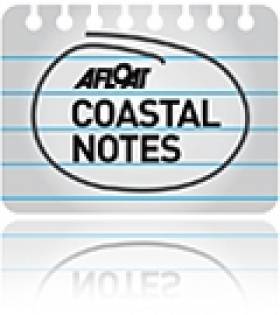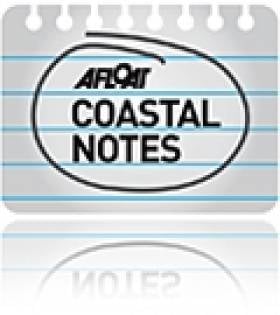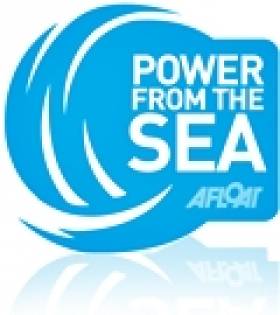Displaying items by tag: Department of Energy
New Oil & Gas Safety Framework to 'Learn Lessons of Gulf'
Ireland's new safety framework for oil and gas extraction and production will be informed by lessons learned after the Gulf of Mexico oil spill, The Irish Times reports.
A report published last week by the Commission for Energy Regulation (CER) outlined that the framework will be developed over the next two years, will be independent of the Department of Energy, and will be implemented in an "open and transparent manner".
The report also highlighted overlaps - and gaps - between state agencies involved in monitoring or working with the oil and gas industry.
One step towards resolving this is the CER's new remit for public safety - which applies to controversial project such as the Corrib gas field.
The Irish Times has more on the story HERE.
Carey Courts Criticism Over Corrib Pipeline Approval
Controversy has arisen over the decision by outgoing Minister for Energy Pat Carey to grant key consents for the Corrib gas pipeline on the day of the general election.
According to the Irish Times, the Department of Energy said consent to construct the pipeline was issued "as a matter of course" after An Bord Pleanála approved the new pipeline route in January.
But Green Party sources told the paper that a recommendation on the consent application by Shell Ireland had not arrived on the desk of former Energy Minister Eamon Ryan before he left office that month.
Meanwhile, An Taisce is seeking a judicial review of the planning decision, which is believed to breach a number of EU directives.
As previously reported on Afloat.ie, planning for the last 8km stage of the Corrib pipeline - which runs through a special area of conversation - was only approved with 58 conditions related its construction and management.
Labour Party president Michael D Higgins told The Irish Times: “This is not a decision that one would regard as 'clearing one’s desk' as minister, as it has very serious implications."
The Irish Times has more on the story HERE.
€3.6 million to Irish Wave Ocean Firm
Energy Minister Eamon Ryan announced today that Irish company Wavebob Ltd has secured a grant of $2.4 million (€1.83 million) from the US Department of Energy to prepare for a commercial-scale wave energy demonstration project planned for US waters in 2013.
Minister Ryan also announced that Bord Gáis is to invest €1.8m in Wavebob Ltd, bringing the total investments to €3.6 million .
The Minister said, "The Irish Government is committed to the development and commercialisation of ocean energy. Wavebob is an innovative Irish company that is thriving even in this tough economic climate, securing one investment after another from major energy utilities at home and abroad.
The recognition of Wavebob's potential by the US Department of Energy also goes to show that as the effects of climate change become increasingly evident, the exploitation of new, clean energy sources is becoming more and more urgent. The Irish Government will continue our absolute commitment to the emergent ocean energy sector and to encouraging the work of world-class companies such as Wavebob.
Renewable energy is the way forward for Ireland. We can use our own homegrown energy and create the new Irish jobs. I wish Wavebob well in their venture"
The grant forms part of $37m in marine and hydrokinetic energy grants announced by the US Department. It will be used to further develop Wavebob Ltd.'s wave energy converter (WEC), which is currently in pre-commercial development. At full scale, the device is capable of producing in excess of one megawatt of energy with average output of over 500kW at sites in the North Atlantic and Pacific oceans.
The 'Wavebob' was one of the first WEC's in the world to successfully produce electricity from ocean swell in 2007. The US Department of Energy grant will be used specifically to develop and test their advanced power take-off device. The project benefits from support and collaboration with Vattenfall, one of Europe's largest utility companies, and Chevron and Lockheed Martin in the US.
"The Department of Energy's funding program for marine hydrokinetic technologies is vital to the development of both products and markets, at home and abroad. We are honoured to be selected for this award through a highly competitive process, and to be working with a distinguished team of leaders in maritime technology", said Derek Robertson, President of Wavebob's US operations based in Annapolis, Maryland.
Traditional sources of finance for technology development have become more and more scarce as a result of the global economic crisis, with the result that many Irish companies are struggling to survive. On the bright side however, Andrew Parish, C.E.O. of Wavebob Ltd., feels that the Irish energy utilities are making particularly good use of state assets in recognizing the world-class potential of a small Irish indigenous company such as Wavebob Ltd. "This investment from Bord Gáis builds on a previous technical agreement with ESBI and clearly demonstrates that Irish utilities recognize the ocean energy opportunity and are key agents of Government policy in maximizing the potential to Ireland of this immense natural resource", he said.
John Mullins, CEO of Bord Gais, says that Ireland has one of the best wave resources off its west coast, "It is important that utilities such as Bord Gais foster the development of companies like Wavebob, to enable them to advance their technology. Bord Gais will be actively involved in this development and we will commit our own resources to its advancement", " he said.































































